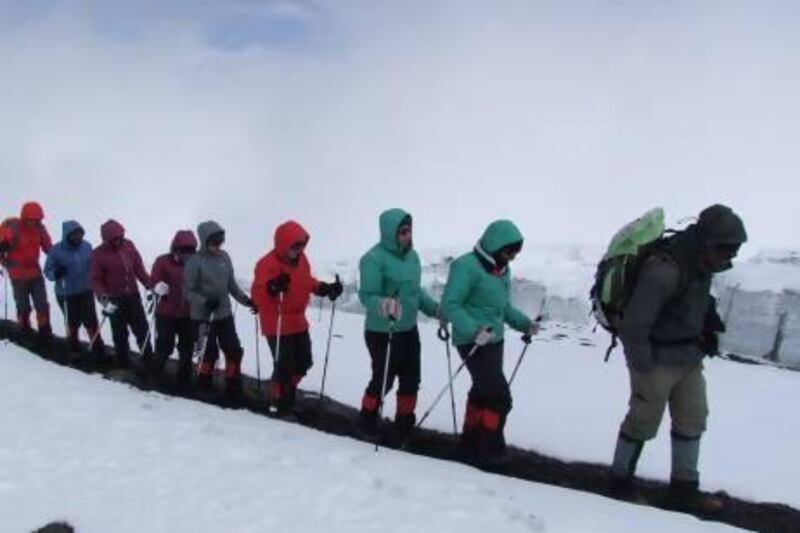DUBAI // A group of women who climbed Mount Kilimanjaro recently raised Dh42,000 to support girls' education in Tanzania.
Nine Emirati students and three faculty members from Abu Dhabi and Khalifa City Women’s Colleges made the trek last month over their spring break.
At 5,895 metres, Mount Kilimanjaro is the tallest peak in Africa. The team hiked to the top in seven days – through freezing temperatures, rain and hail.
“The trip was extremely difficult,” said Dr Cathy Cavanaugh, associate director of Abu Dhabi Women’s College, one of the faculty members who made the climb. “It was a new experience in every possible way. It was an amazing test of each of us, as far as what we could accomplish and how determined we could be.”
She added: “At the end, some of the students were saying they missed their tent, and can’t wait to go back.”
The team was led by Suzanne Al Houby, chief executive of Dubai’s Rahhalah Explorers, who has climbed Kilimanjaro seven times.
One of the main goals of the trip was to raise money to support girls’ education in Tanzania, said Intesar Ahmed, head of community relations for the Higher Colleges of Technology.
“They raised that money from friends, classmates and family members,” Ms Ahmed said. “They did a very good job.”
After their two-day descent from the mountain, the students visited a secondary school in Arusha to speak to children and school administrators.
“I think it was a big piece of the whole trip being life-changing,” said Dr Cavanaugh. I think it made a very, very deep impression on them, right from arriving at the school and seeing we had to drive through mud – there was no pavement, no playground.”
When the Emirati group asked the Tanzanian students what they needed to learn, they said they wanted a desk, a chair and books for each student.
“Our students felt really grateful to help them, and many of them pledged to do more,” Dr Cavanaugh said. “They definitely saw the need and saw the brightness of the children as well. They came to appreciate others, and they also came to appreciate what they have in the UAE.”






